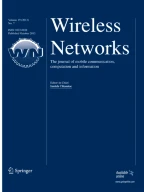Abstract
Any activity of an industrial enterprise will have an impact on the economic, social and environmental sectors. At present, the main business goal is to generate and maximize profits. The 2030 Agenda for Sustainable Development put the focus on maximizing profit also how profit is generated and what impact have profit-generating activity on society and the environment. Every activity in an industrial enterprise is preceded by decision-making. The multi-criteria nature of decision-making in the context of sustainable development (and its economic, social and environmental criteria) is a prerequisite for the application of multi-criteria optimization methods. The basic precondition to apply exact methods in decision-making is the manager who has knowledge of the exact methods and interest in their application. Based on different theories and decision-making approaches that do not arise from an exact decision-making approach, the decision-makers are unable to make rational decisions. The results of several conducted surveys of managers' decision-making show that managers decide on complex issues based on subjective reasoning or intuition (Liebowitz, in: Forum: intuition-based decision-making: the other side of analytics. https://analytics-magazine.org/forum-intuition-based-decision-making-the-other-side-of-analytics, 2015). The authors of the article focused on the issue of decision-making in the selection of a production project based on the criteria of sustainable development. The aim of the paper is to present the application of exact method—Analytical Hierarchical Process in decision process on above mentioned issue.
Similar content being viewed by others
References
Brezina, I., Ivaničová, Z. & Pekár, J. (2007). Operačná analýza. (Operational Research) (p. 242). Bratislava: Iura Edition. ISBN 978-80-8078-176-7.
Constitutional Act. No. 17/1992 Coll. Constitution of the Slovak Republic.
Deng, H., Yeh, C. H., & Willis, R. J. (2000). Inter-company comparison using modified TOPSIS with objective weights. Computers and Operations Research, 27(10), 963–973. https://doi.org/10.1016/S0305-0548(99)00069-6.
Fotr, J., & Švecová, L. (2016). Manažerské rozhodování. Postupy, metody a nástroje. (Managerial decision-making. Procedures, methods and tools) (p. 474). Praha: Ekopress. ISBN 978-80-87865-33-0.
Hrablik Chovanová, H., Sakál, P., Drieniková, K., & Naňo, T. (2012). Operačná analýza. Časť II. (Operational research. Part II) (p. 223). Trnava: Alumni Press. ISBN 978-80-8096-165-7.
Ivaničová, Z., Brezina, I., & Pekár, J. (2002). Operačný výskum. (Operational research) (p. 287). Bratislava: Iura Edition. ISBN 80-89047-43-2.
Laxman, P. G., & Yeonbae, K. (2018). An analysis on barriers to renewable energy development in the context of Nepal using AHP. Renewable Energy, 129, 446–456. https://doi.org/10.1016/j.renene.2018.06.011.
Liebowitz, J. (2015). Forum: Intuition-based decision-making: The other side of analytics. Retrieved 9 Jan 2020 from https://analytics-magazine.org/forum-intuition-based-decision-making-the-other-side-of-analytics.
Ministry of Environment of the Slovak Republic. (1996). AGENDA 21 a ukazovatele trvalo udržateľného rozvoja. (The AGENDA 21 and sustainable development indicators) (p. 517). Bratislava: MŽP SR. ISBN 80-88833-03-5.
Meadows, D. H., Meadows, D. L., Randers, J., & Behrens III, W. W. (1972). The limits to growth: A report for the Club of Rome's project on the predicament of mankind (p. 205). New York: Universe Books. ISBN 0-87663-165-0.
Molnár, S. & Szidarovszky, F. (2016). An Alternative Method in Optimizing Random Outcomes. Acta Polytechnica Hungarica 13(4). https://www.uni-obuda.hu/journal/Molnar_Szidarovszky_68.pdf
Ozdemir, S., & Sahin, G. (2018). Multi-criteria decision-making in the location selection for a solar PV power plant using AHP. Measurement, 129, 218–226. https://doi.org/10.1016/j.measurement.2018.07.020.
Papula, J., & Papulová, Z. (2005). Manažérske rozhodovanie—Vybrané problémy. (Managerial decision-making—Selected problems) (p. 161). Bratislava: Kartprint. ISBN 80-88870-45-3.
Pavlović, A., Tadić, D., Arsovski, S., Jevtić, D., & Pavlović, M. (2016). Evaluation and choosing of recycling technologies by using FAHP. Acta Polytechnica Hungarica, 13(7), 143–157.
Ramík, J. (2000). Analytický hierarchický proces (AHP) a jeho využití v malém a středním podnikání. (Analytic Hierarchy Process (AHP) and its use in small and medium sized enterpreneurship) (p. 217). Karviná: Slezská univerzita. ISBN 80-7248-088-X.
Saaty, T. L. (2010). Mathematical principles of decision making (p. 531). Pittsburgh: RWS Publications. ISBN 978-1-888603-10-1.
Saaty, T. L. (2008). Decision making for leaders: The analytic hierarchy process for decisions in a complex world. Pittsburgh: RWS Publications. ISBN 0-9620317-8-X.
Sedlák, M. (2009). Manažment (Management) (p. 434). Bratislava: IURA Edition. ISBN 978-80-8078-283-2.
Stead, J. G., & Stead, W. E. (2017). Management for a small planet (p. 232). New York, Routledge. ISBN 1906093318.
Storch de Gracia, M., Moya Perrino, D., & Llamas, B. (2019). Multicriteria methodology and hierarchical innovation in the energy sector. Management Decision, 57(5), 1286–1303. https://doi.org/10.1108/MD-07-2017-0676.
United Nations Information Service. (2019). Sustainable Development Goals. Retrieved 20 Dec 2019 from https://www.unis.unvienna.org/unis/en/topics/sustainable_development_goals.html.
United Nations Organization. (1987). Report of the world commission on environment and development—our common future. Retrieved 7 Jan 2020 from https://www.un-documents.net/our-common-future.pdf.
United Nations Organization. (2015). Resolution Adopted by the General Assembly on 25 September 2015. Transforming our world: the 2030 Agenda for Sustainable Development.
Varcholová, T. & Dubovická, L. (2008). Nový manažment rizika. (New management of risk) (p. 196). Bratislava: Iura Edition. ISBN 978-80-8078-191-0.
Wang, T. C., & Lee, H. D. (2009). Developing a fuzzy TOPSIS approach based on subjective weights and objective weights. Expert Systems with Applications, 36(5), 8980–8985. https://doi.org/10.1016/j.eswa.2008.11.035.
Zimmermann, H. J. (2001). Fuzzy set Theory and its Applications. Boston: Kluwer Academic Publishers.
Acknowledgement
The paper is part of the Project within the scheme Young Researcher, called “Increasing the efficiency of logistics and production processes using lean management methods”, No. 1337, KEGA Project No. 030STU-4/2018 called “E-platform for Improving Collaboration among Universities and Industrial Enterprises in the Area of Education” and VEGA Project No. 2/0077/19 called “Working competencies in the context of Industry 4.0 development” and H2020 project Nr. 873134 “Linking Science and Innovation for Gender Equality”.
Author information
Authors and Affiliations
Corresponding author
Additional information
Publisher's Note
Springer Nature remains neutral with regard to jurisdictional claims in published maps and institutional affiliations.
Rights and permissions
About this article
Cite this article
Jurík, L., Horňáková, N., Šantavá, E. et al. Application of AHP method for project selection in the context of sustainable development. Wireless Netw 28, 893–902 (2022). https://doi.org/10.1007/s11276-020-02322-2
Published:
Issue Date:
DOI: https://doi.org/10.1007/s11276-020-02322-2
